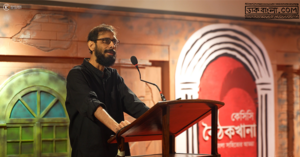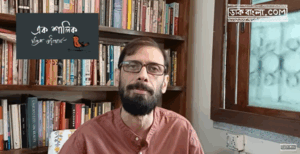Rachna Books, Gangtok: Third Space in the Himalayas
The little wooden winder staircase that connects the ground floor to the mezzanine in Oxford Bookstore on Park Street in Kolkata used to be a haven for penniless students. Back when bookshops did allow such folk to pull down a volume and spend upwards of an hour reading from it before being subject to a stern, subtly pitiful gaze, I spent many afternoons on these steps. I distinctly remember flipping through books I couldn’t afford, sitting for hours on that stairwell.
At Rachna, the tiny wooden staircase between the ground and the first floor was a direct reminder of its Oxford Bookstore version; a gateway to another world, the Platform Nine and Three-Quarters that leads you to the magic of a unique bookstore.
I knew nothing about Rachna Bookstore, Bookman’s, Café Fiction, or Raman Shresta prior to a Gangtok visit in 2019. I booked my stay in Gangtok at Bookman’s, its bed-n-breakfast wing, because somehow it felt like the counterpart of Darjeeling’s now-iconic Revolver.
The first image that greeted us on a cold November morning at Rachna was a glass door with this line written on in colourful letters— ‘Your life is a story’. As my son, then 9, ran his way up the narrow wooden stairs that led to the rooms above, I stepped into Café Fiction, and was instantly taken in by the vibe. Over the course of the next three days, I spent much of my day here, and got to know Raman and his lovely family.
On the outside, Bookman’s/Rachna is a typical specimen of inner city, middle-class Gangtok architecture; an upright, rectangular building flanked by small balconies, just three or four stories high. Despite these balconies that open out from rooms in a hallway, the building does not give out an immediate impression of being a ‘guest-house’— it still looks and feels comfortably lived-in, well-maintained yet without the pizzazz of a commercial establishment.
Over the last two decades, Rachna Books has emerged as possibly the most vibrant cultural landmark in the eastern Himalayas. The bookstore has emerged as intrinsic interaction space for the exchange of knowledge and contemporary culture, with talks, performances, readings, workshops and screenings a regular fare. The intent is to ‘bring the world at large to the Himalaya and, in turn, share our slice of life with the rest of the world’.
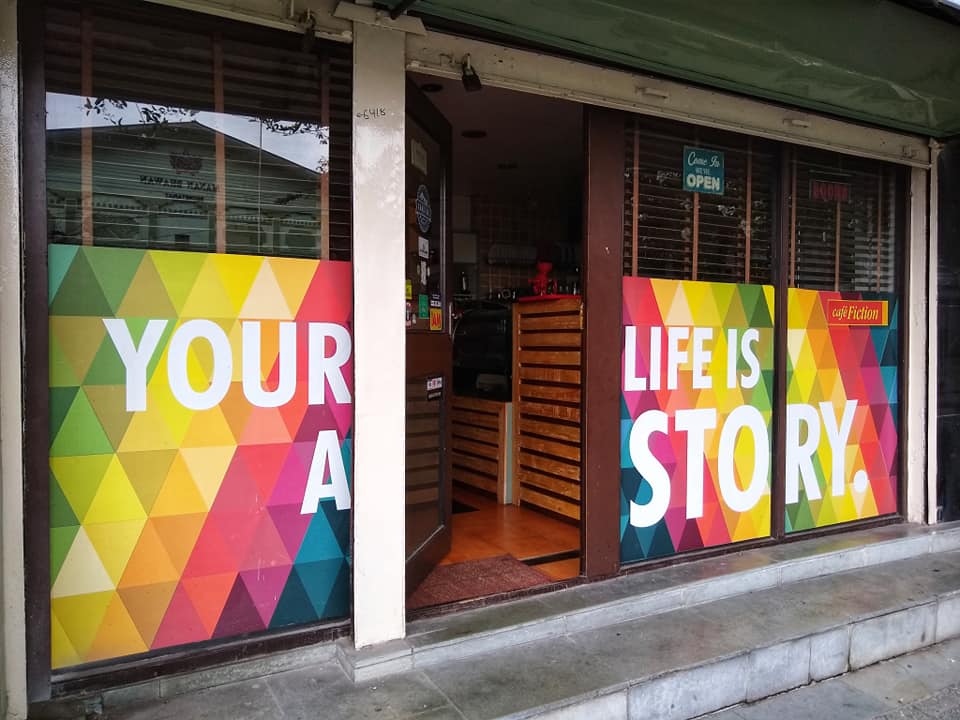
Shresta has been a speaker at a wide range of literary and publishing platforms, including the Jaipur Literature Festival, The Hindu Lit for Life, Goa Arts and Literature Festival, Jaipur Bookmark, Brahmaputra Literary Festival and Kantipur Conclave in Kathmandu. He is among a dozen publishers (six from India and six from the UK) to be selected for the year-long British Council International Publishing Fellowship 2022. He was a part of the India delegation at the Sharjah Booksellers Conference 2022.
In 2015, Rachna Books was awarded the ‘Best Bookshop: Publishing Next Industry Award’, and in 2020, the ‘Food for Thought Best Bookstore Award’ at the Hyderabad Lit Fest.
Bookseller, publisher, inn-keeper– Raman Shresta is all this, and more. Simply put, Shresta has been the harbinger of a new wave of literary interest in Sikkim, the guardian of a flame that he helped rekindle in the early 2000s and has been steadfastly feeding. Daakbangla.com spoke to Shresta about his singular establishment, on writing, publishing and a legendary tea break…
Tell us a little about the beginnings of Rachna: What were its early years like?
Rachna Books was started in 1979 by my family. It was the time when people still met at the end of the workday and one of the recreations was to meet at the bookshop on the pretext of picking up the day’s paper. One would invariably meet someone there. The 1980’s were a great time to be when people still socialized, visited each other – a time when cable television had not yet invaded our homes. There was a strong sense of community and bonding. Books and radio helped facilitate these engagements.
In the second chapter of Rachna – and its current avatar as we know it – you are the central figure. What made you want to re-open the shutters on the business?
One can always attribute the good fortune of re-opening the bookstore to a lot of things, but most of all, it must have been destiny. It was my calling in life. Yes, it did require a daring plunge – bookselling is not an easy career to have. It was the time when every third shop in town was an either an online lottery store or a liquor store. Looking back now, I think I am lucky to have been allowed to do what I love doing and getting away with it too!
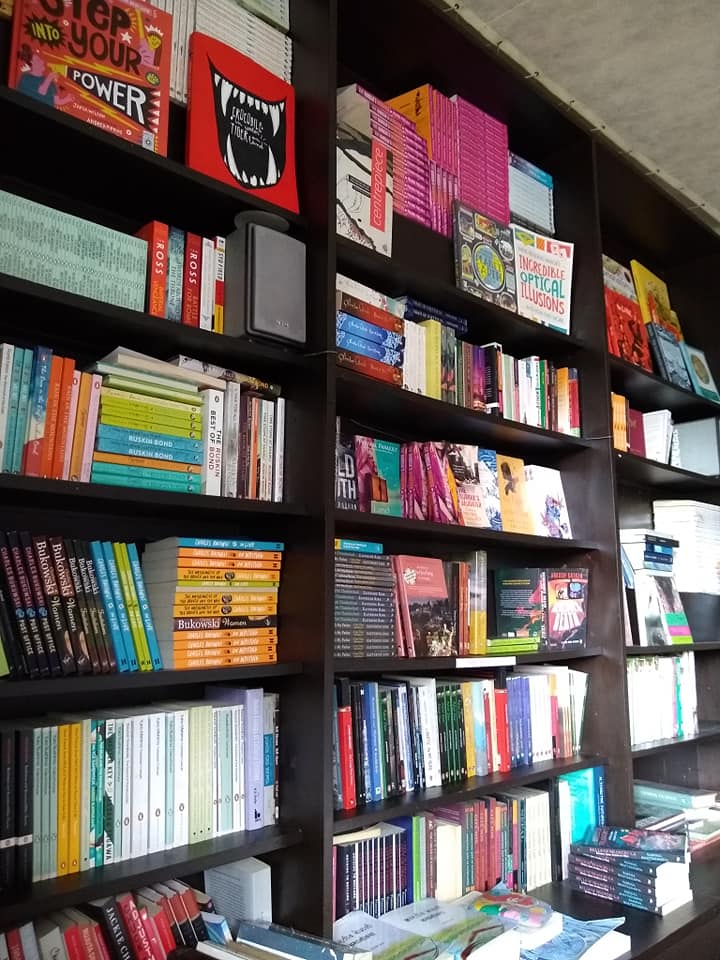
What were the hurdles you faced to emerge as an ‘independent’ establishment?
The hurdles in successfully running an independent establishment are many and they keep changing. During my early days, attracting people to my store was a big challenge. I would rate a day being a success if a new local person walked into the bookstore. Later, I would consider it a big success if those people came back to the store looking for more books.
Sometimes, it is the natural elements or the infrastructure affecting the timely supply of books. Other times it is the broken, faulty, lengthy and time-consuming supply chain system we have to struggle with.
More often than not, it is the publishing industry itself which can be uncooperative to lesser bookstores and smaller bookshops. This hurdle still takes the number one spot in terms of the woes we suffer.
One would assume that the very idea of Rachna as an ‘independent’ bookstore would have involved a strong socio-political identity. How has this identity evolved over the past two decades?
We let the curation of the books we stock and the events we hold speak for us. What we choose to sell in our bookstore is, to a large extent, a reflection of our world-view, to the best of our knowledge. They say that even which book sits next to which other book can be a reflection of their philosophy. It thrills us when travellers often say that we have a uniquely curated collection – something they don’t see in big chain-stores. Our collection is not driven by numbers and algorithms. If anything, it runs on algorithms of the heart and head, and our human knowledge of our patrons’ personal tastes.
At Rachna, one finds a collection that is thus quite singular. Has the curation in Rachna always centred around Himalayan identities and philosophies, or was it something you had developed over the years?
We have, on the contrary, resisted being that bookstore which sells books that the cliched notions expect of us – that of being a bookstore in the mountains selling only books about the mountains. When I go book shopping to the publishers’ and distributors’ warehouses, I still have to resist the urge of the sales representatives there to push books on Buddhism to me. Or books on mountaineering. Or coffee table books on the mountain landscape. It’s frustrating.
‘What we choose to sell in our bookstore is, to a large extent, a reflection of our world-view, to the best of our knowledge. They say that even which book sits next to which other book can be a reflection of their philosophy. It thrills us when travelers often say that we have a uniquely curated collection – something they don’t see in big chain-stores. Our collection is not driven by numbers and algorithms. If anything, it runs on algorithms of the heart and head…’
A bookstore has to work as a bridge over which ideas from across the world, time and space pass on to us and our understanding of life, the world – our knowledge, culture, history and stories pass on to the rest of the world. It is a space of discovery, learning and sharing.
The bookstore is now a significant cultural space; of course, with Café Fiction and Bookman B&B, Rachna holds a charmingly unique appeal (it is my favourite place in all of Gangtok). Tell us how both these ideas came to be…
Over the first few years of my having run the bookshop, the bookshop – with its books, events and engagements with the community was already emerging as a third space for our hill town. It was only natural that we needed more than just books to fuel our ideas. Also, with the coming of online stores, some client base moved out of our space. Gangtok seemed ready for a more vibrant melting pot of ideas and that is how Café Fiction came to be one floor below the bookshop. And because we were meeting engaging scholars, researchers, artists, musicians and travellers looking for a place to drop down their bags and find a restful home in Gangtok, we converted the floor above our bookshop in to four room bed-n-breakfast.
Tell us all about the 2pm tea break…
Legend has it that this friendly book-seller was known for making a cup of tea that was as excellent as his curated collection of books. Come 2pm every day, no matter who happened to be in the bookstore, the person was given the job of looking after the bookshop – a secret fantasy of many (that of being a bookseller), while said bookstore owner went upstairs to make tea for everyone. Soon, friends and people who went on to become Friends@Rachna would meet at 2 pm for tea. It reached a point where it was becoming embarrassing for the regulars to keep sipping free tea, and so the café was opened on their insistence.
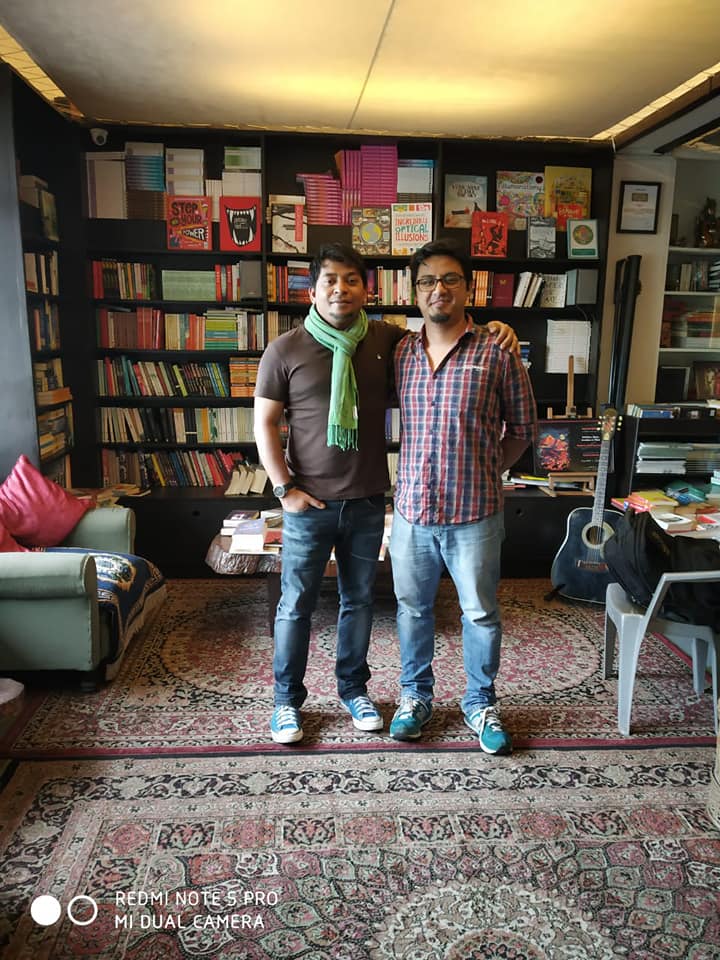
A certain expansion is already under way, with the publication wing. What are your plans to reach a broader reader/audience base?
We made a foray into publishing because four decades of bookselling showed us that books on our region was sparse, not all authorotative and most published abroad were both unaffordable and inaccessible. Researchers would work here for years, on our communities, culture, our people and our lives. But these books would be published abroad by university presses making them extremely expensive and difficult to access.
With us stepping into publication, we are now making books like this, even works of fiction available and affordable. More and more young scholars and students now have the books available to them easily.
Do you feel that books hold adequate amount of interest for the younger generations, today?
Yes, more than ever. We should really kick this notion out of the general psyche that books are losing ground in people’s lives. 80% of the people who visit our store are youngster and students. Almost 70% of the buyers are again these youngsters.
There are folks love to lament how reading culture is long gone and how people don’t read any more. My answer to them is that it is they who have stopped reading (if ever they did). Those who read continue reading. The youngsters have grown up with the gadgets, the internet and books side-by-side. It is the people from the earlier generation who have conveniently switched from reading to their form of recreation that social media provides.
There are a number of authors in Bangla who have written on life in the Himalayas. Some of them are bilingual, like Parimal Bhattacharya. For the others, have you considered translated works under the publication wing?
It is such a great time for writing from these regions, in fiction, non-fiction, poetry.
Parimal Bhattacharya’s ode to Darjeeling is so beautiful. Every town ought to have a ballad like that written by someone who truly understands the place and its people.
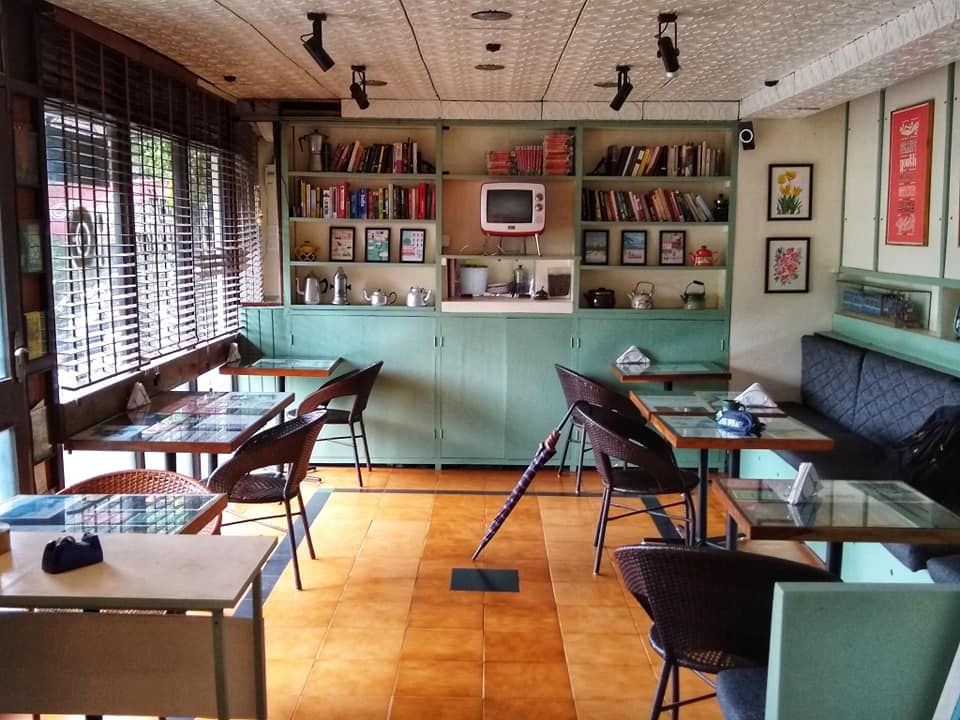
Recently, a Nepali writer has written a novel in Bangla, which has been translated to Nepali by a Bangla translator.
Our publication, the first ever novel about the 1980s Gorkhaland revolution written by someone from the region- Song of the Soil by Chuden Kabimo, has already been translated to English, Bangla and soon Hindi. It even got shortlisted for the prestigious JCB Prize for literature.
We are now in the process of publishing another classic novel from the region this year. We are very encouraged by the response our books have got. I get approached almost every fortnight by a new person writing a book.
It’s amazing. From the time when drawing people to the bookstore was a challenge, we now have readers and writers as well!
Photographs by the author


